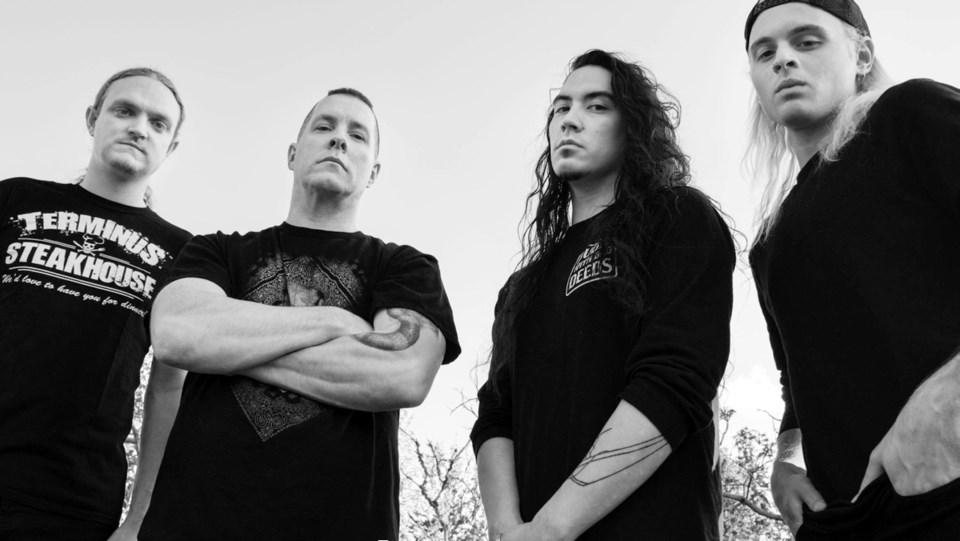IN CONCERT
What: Annihilator with Mason and Mutank
When: Tuesday, 8 p.m.
Where: Distrikt, 919 Douglas St.
Tickets: $30 at Ticketfly.com, The Strathcona Hotel
Heavy metal is cyclical by nature. What was popular with audiences in 1987 could be dead in the water by 1997, before coming back into vogue by 2017.
There’s often little to account for the swings in popularity, which is a fate that befell Ottawa-based group Annihilator, considered one of the country’s longest-running and biggest-selling metal acts.
Annihilator will kick off its first tour of Canada in more than 20 years Tuesday at Distrikt — a tour that was put together single-handedly by Annihilator singer-guitarist Jeff Waters.
“I basically put the tour together without any [booking] agency, management or record company,” Waters, 51, said from his home in Ottawa. “I simply picked up the phone.”
His decision to control his band’s fate on this tour was done out of necessity. Annihilator is currently without representation in Canada, despite earning a Juno Award nomination in 2017 for its album, Suicide Society.
It’s odd that Annihilator never truly broke big here, Waters admitted. Although the thrash metal group amassed a loyal following through its first two releases, Alice in Hell (1989) and Never, Neverland (1990), Waters and Annihilator have been forced to make their living playing overseas.
The group’s leader (and only original member) first shifted his focus to European audiences during the early 1990s, when the public’s appetite for metal subsided. Like many under-the-radar metal acts at the time, Annihilator was dropped from their label in 1993, when grunge took over.
“I realized for a short time that my career was done,” Waters said. “All the top bands like Metallica and Iron Maiden survived, but were downgraded. The lower bands were pushed right out. But very shortly afterwards, I realized people still wanted to see the band overseas. And that’s what I did.”
Waters puts Annihilator in the same category with fellow metal acts Overkill, Exodus and Testament as bands that were able to withstand the drought. Times were lean during the ‘90s, but each group has made inroads in recent years, albeit with new members in the fold. “We all had a turnaround of tons of musicians,” Waters said.
“When times were tough for metal, you couldn’t keep the best musicians because they would jump to better jobs.”
It wasn’t supposed to be this way for Annihilator, which was touring with bands like Pantera and Judas Priest at its peak. The problems for Waters began in 1989, when its original singer and bass player, Randy Rampage, left the group mid-tour. The band’s debut in 1989 had found an audience in Europe, which led to tours with big name metal acts.
Rampage’s departure was a blow from which Waters never recovered. “To have a guy all of a sudden turn around and just quit, that was the moment I realized Annihilator was going to be more of a solo project behind the scenes.”
More than 40 musicians have passed through Annihilator’s ranks in the years since. Some have appeared on tours, while others only on albums. They all played a part, though Waters is responsible for every facet of Annihilator on stage and in the studio.
“You owe it to all the guys who contributed on the studio end, because they were all important. For touring, it was just a matter of me keeping up hiring the best guys I could find.”



